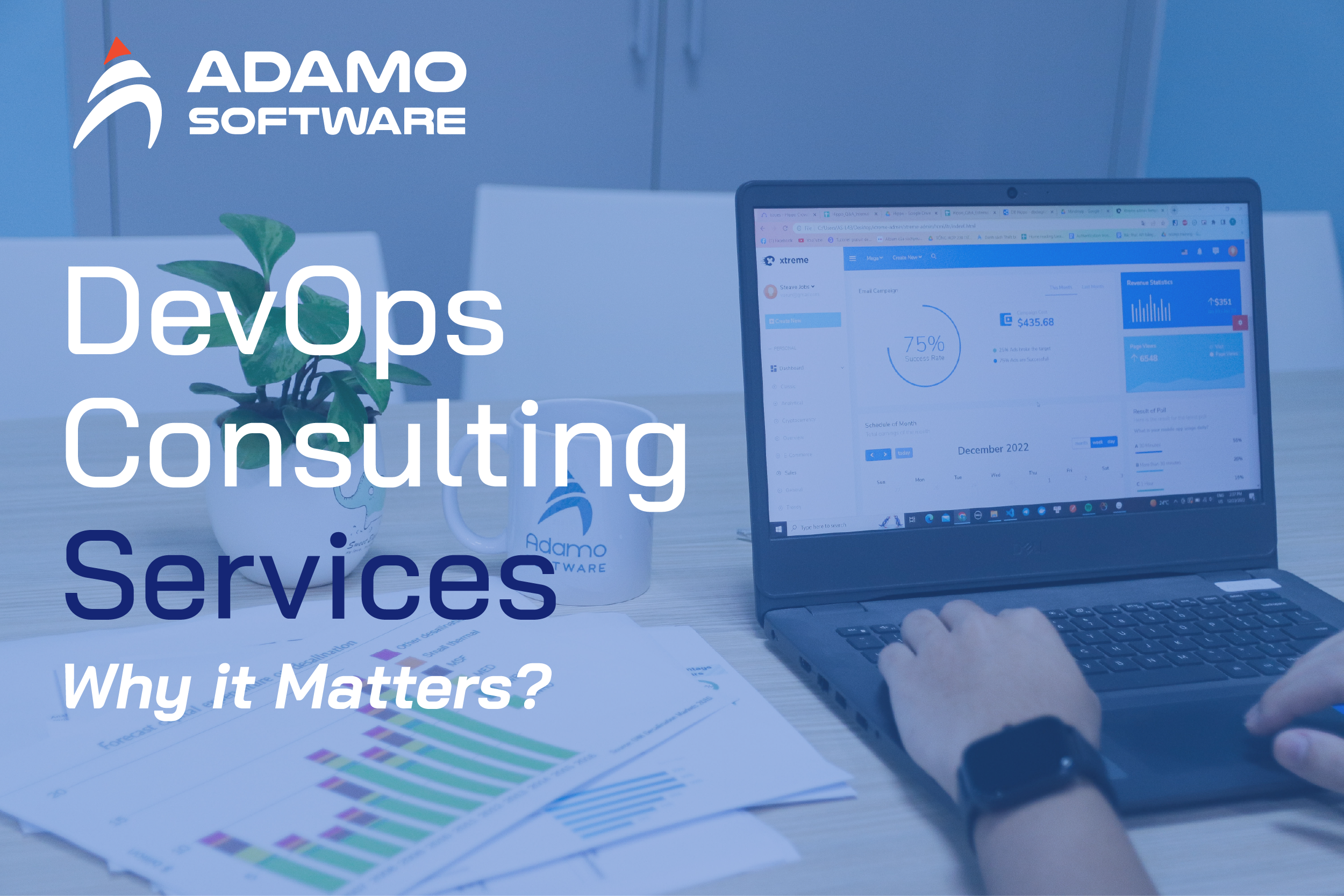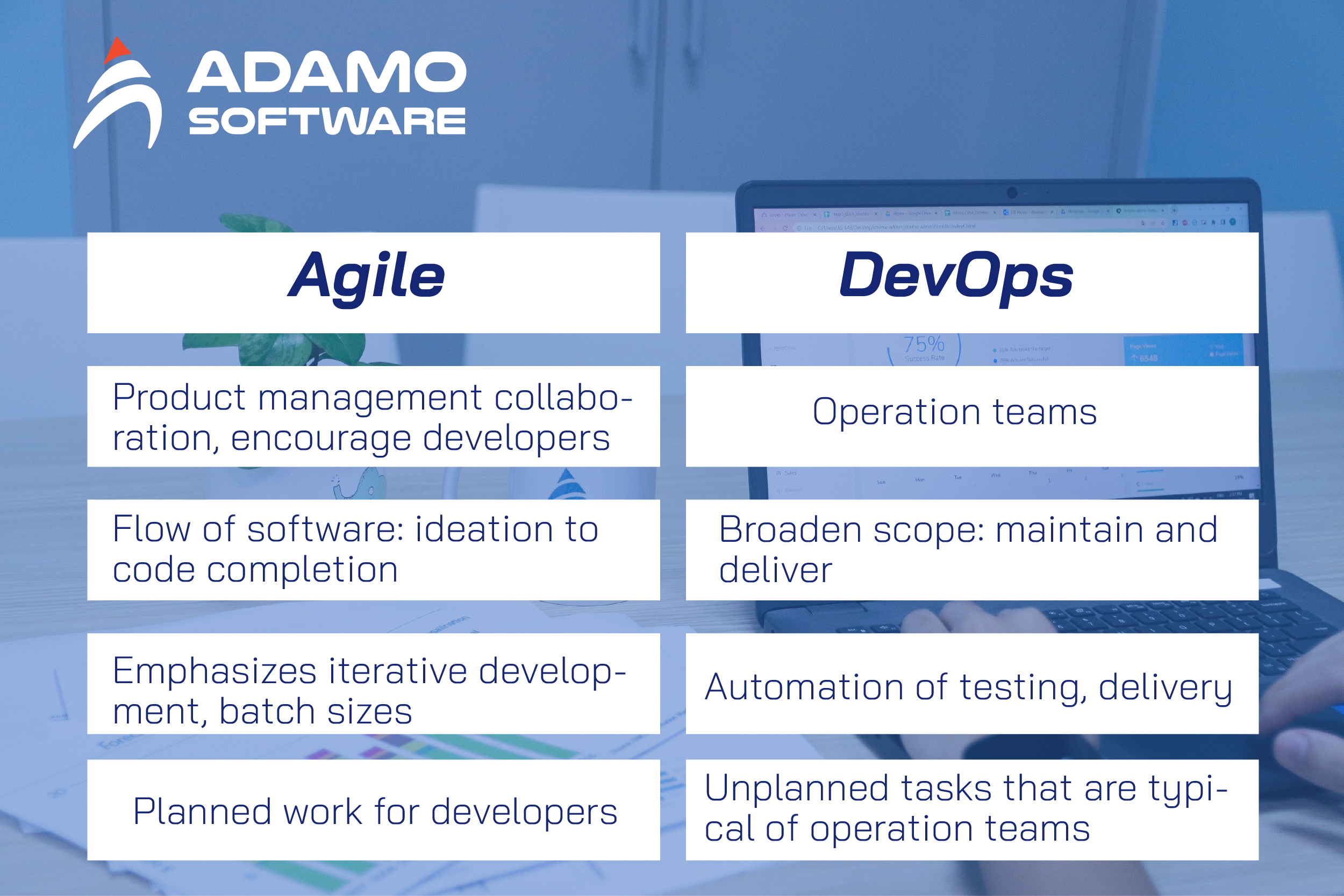DevOps consulting services: What is DevOps Consulting? Why it Matters

With the growing demand for faster product and service delivery, DevOps consulting services are helping firms optimize their operations and enhance efficiency.
By integrating operations and development into a unified workflow, DevOps enables organizations to provide superior products and services at an unprecedented rate. As agile development methodologies and cloud computing continue to proliferate, DevOps has emerged as a critical component of contemporary business operations.
This article aims to examine the criticality of DevOps consulting services for contemporary enterprises and how they can assist your organization in maintaining a competitive edge.
I, What is DevOps Consulting?
DevOps consulting is precisely what its name suggests: a service that advises and assists businesses in the adoption and implementation of DevOps practices within an existing infrastructure.
A proficient DevOps consulting firm and its specialists can be of great assistance to organizations that have implemented or are considering implementing DevOps. These professionals can guide you at every stage of the process and guarantee a successful DevOps journey.
II, What are DevOps Consulting Benefits?
1. Improved efficiency and productivity
Businesses can increase their productivity and efficacy with the assistance of DevOps consulting services, which streamline the development and operations processes.
The implementation of technological integration and the automation of manual processes can help organizations decrease the time and effort needed to develop software of superior quality.
2. Faster time-to-market
By utilizing DevOps consulting services, organizations can expedite the delivery of new features and enhancements to customers.
By streamlining the software development and deployment procedure, organizations can effectively mitigate the temporal investment required to introduce novel software, thereby securing a competitive edge.
3. Improved quality and stability
Businesses can improve the quality and stability of their software with the assistance of DevOps consulting services and the implementation of best practices for monitoring, testing, and deployment.
By implementing rigorous testing and monitoring procedures for software during production, organizations can mitigate the likelihood of encountering bugs and unscheduled disruptions.
4. Better collaboration and communication
DevOps consulting services can assist organizations in enhancing communication and collaboration between their development and operations teams.
Through the elimination of silos and the encouragement of a collaborative culture, organizations can enhance their capacity to provide software of superior quality.
5. Cost savings
The automation and efficacy of DevOps can facilitate resource optimization and cost reduction by eliminating the need for manual labor.
6. Better customer satisfaction
DevOps practices contribute to the delivery of superior software that satisfies customers’ requirements and expectations, thereby increasing customer loyalty and satisfaction.
III, How to Implement DevOps Services
1. Introduce DevOps Initiative
When a company starts DevOps consulting services as part of its IT work, the CIO plays a key role in facilitating requirements such as human resources and investment. As a result, modifications are introduced to the operations and development processes. At the same time, the program manager develops and manages the execution of a DevOps strategy.
2. Develop DevOps Strategy
DevOps strategy depends on best practices that help teams work together and create new ways to set up technology, build software, and test it. We automate testing, integration, deployment, and release processes, in addition to implementing the Infrastructure-as-a-Code (IaC) mechanism and having our program managers establish a unified objective and team alignment in a shared environment.
3. Use containerization
We employ containerization to guarantee the dependability of software as it navigates between processes. Using containerization, discrete components of the software operate autonomously from the overarching infrastructure, thereby enhancing their capacity to function in any environment devoid of dependencies. Moreover, our container packaging facilitates the management of applications by operations teams if a particular microservice requires modification.
4. Integrate Infrastructure with CI/CD Tools
One way to effectively resolve configuration management concerns and facilitate deployment is by integrating CI/CD tools with infrastructure automation tools, such as Kubernetes, Ansible, and Chef, which are Jenkins, Bamboo, or GoCD. These tools implement periodic software updates and continuous monitoring to prepare containers for risk tolerance.
5. More Test Automation and QA-Dev Alignment
We advise implementing test automation to accelerate delivery cycles. Manual functional testing may be necessary, contingent upon the degree of test automation cases. Conversely, QA-Dev alignment is vital for resolving issues that arise after the release. This alignment facilitates the proactive identification of bugs and enables the resolution of issues before the subsequent build’s release.
6. Application Performance Monitoring
Using the appropriate software, application performance monitoring aids in identifying, prioritizing, and isolating application flaws and their underlying causes. Typically, application server and user experience (UX) monitoring activities unveil these concerns.
You can explore what is the back-end development here.
IV, Key Components of DevOps Services
1. Continuous development
Continuous development is the initial phase of a DevOps lifecycle. Throughout this phase, the team focuses on the strategic planning and coding of the software. This element promotes consistent and ongoing updates. Thus, the group can provide consumers with code immediately following its completion and testing.
This is feasible because continuous development generally streamlines the development process through the subdivision of it into more manageable development cycles.
2. Continuous integration
Continuous integration (CI) is a method used in software engineering that lets tech companies automatically add changes to code that were made by multiple authors. Therefore, it’s easy for them to make a single software project that works and has all the necessary changes.
Additionally, it lets users give comments that contributors can use when they are planning to add new features to applications. In many cases, this is the busiest part of the DevOps process because most changes can happen during this time.
3. Continuous testing
Continuous testing is another important part of DevOps. This is a type of software testing that contributors and team members do at all stages of the development process. The main purpose of this process is to judge the quality of the software. Developers usually do this by finding any mistakes or bugs in the code. Quality analysis (QA), which lets the team test how easy it is to use the software, is a big part of this DevOps stage. The QA method also lets them know if the software meets the client’s needs and the main requirements.
4. Continuous deployment
Continuous deployment (CD) is the process where the participants make the right changes, and these changes are stable enough for a software release. This part makes it easy and quick for writers to fix any problems with code and software. The CD also helps them do better work because they don’t have to plan when to share things. Organizations need to keep the development, staging, and production settings very consistent so that the CD stage goes better.
5. Continuous monitoring
Continuous monitoring is a stage of operation in which developers identify any flaws in the software. This phase also provides them with ample time and resources to improve the application’s overall efficiency. During the monitoring step, they also identify and eliminate any system faults, assuring the software’s full functionality, availability, and security.
6. Continuous feedback
Continuous feedback in DevOps refers to the process of regularly reviewing the consequences of each software release and producing reports that help the development team better future releases. Effective feedback is virtually instantaneous, and entire teams and departments can receive it at the same time. The way a company handles client or expert criticism can have an impact on its corporate image and simply help the development team improve the way they correct code issues and make changes to apps.
Furthermore, continuous feedback assists businesses in increasing employee engagement and productivity.
7. Continuous operations
The last part of the DevOps process is continuous operations. The main goal of these operations is to help developers get rid of or greatly reduce the need for planned downtime, such as maintenance. Some things they can do, like A/B testing and looking for small, frequent releases, will help them reach that goal. Organizations can keep up the same amounts of productivity and efficiency no matter what happens because of continuous operations.
V, DevOps vs Agile: Differences & Similarities

The Agile Manifesto makes it clear that working software, dealing with customers, responding to change, and focusing on people and interactions are the most important things. It’s clear that these are the same goals that DevOps has. However, they’re not just for development. They’re also for managing systems and running apps.
Explore is devSecOps still the top software development life cycle (SDLC).
VI, Differentiate DevOps Consulting Services vs In-house DevOps Team
| Feature | DevOps Consulting Services | In-house DevOps |
| Tech expertise + experience | Certificates confirming to technical expertise and extensive experience. | Lack of skills and experience. |
| Costs | Controlled costs and the chance to save money when working with DevOps companies from countries whose markets are still growing. | More money spent on hiring, training, expenses, and taxes. |
| Projects/tasks diversity | Extended expertise in various fields. | Get used to one scope of tasks and one type of project. |
| Security | Escalated security risks. Businesses need to choose a reliable vendor. | Better ensured security. |
| Business expertise | Lack of business expertise. It is essential to select a vendor with expertise in the same field. | Well-developed business expertise. |
VII, Why Choose Adamo as a Trusted DevOps Consulting Company
As a premier software development company in Vietnam, Adamo Software excels at mobile apps, web-based software solutions, AI development services, blockchain software development, and devOps consulting services in diverse industries such as travel and hospitality, healthcare solutions, fintech as well. Besides, we always consider three factors including fasten time to launch, easily allocating development efforts, and cost-efficient software solutions. If you are looking for a trusted devOps consulting company, contact us for more.





